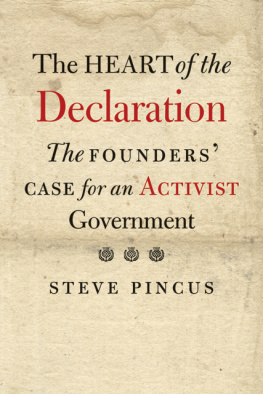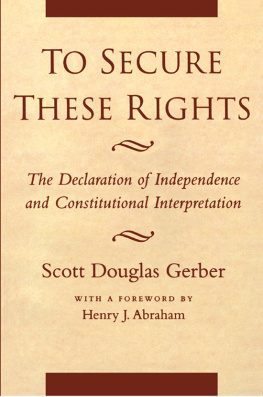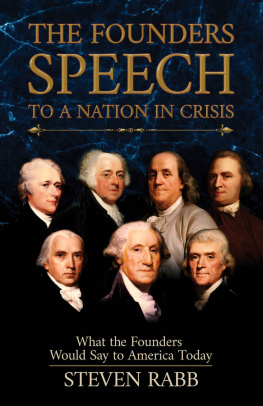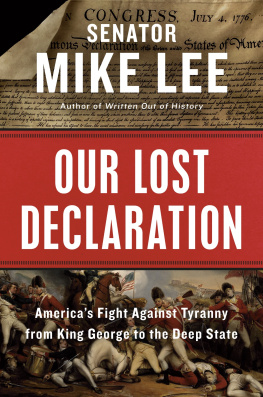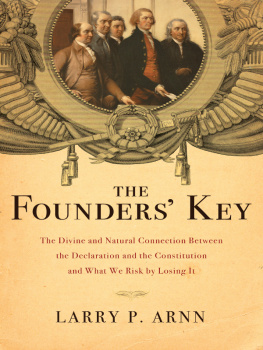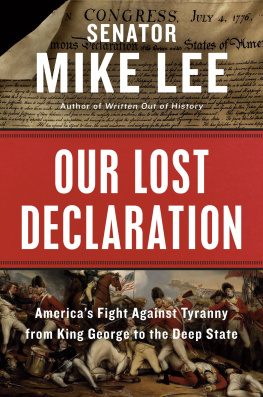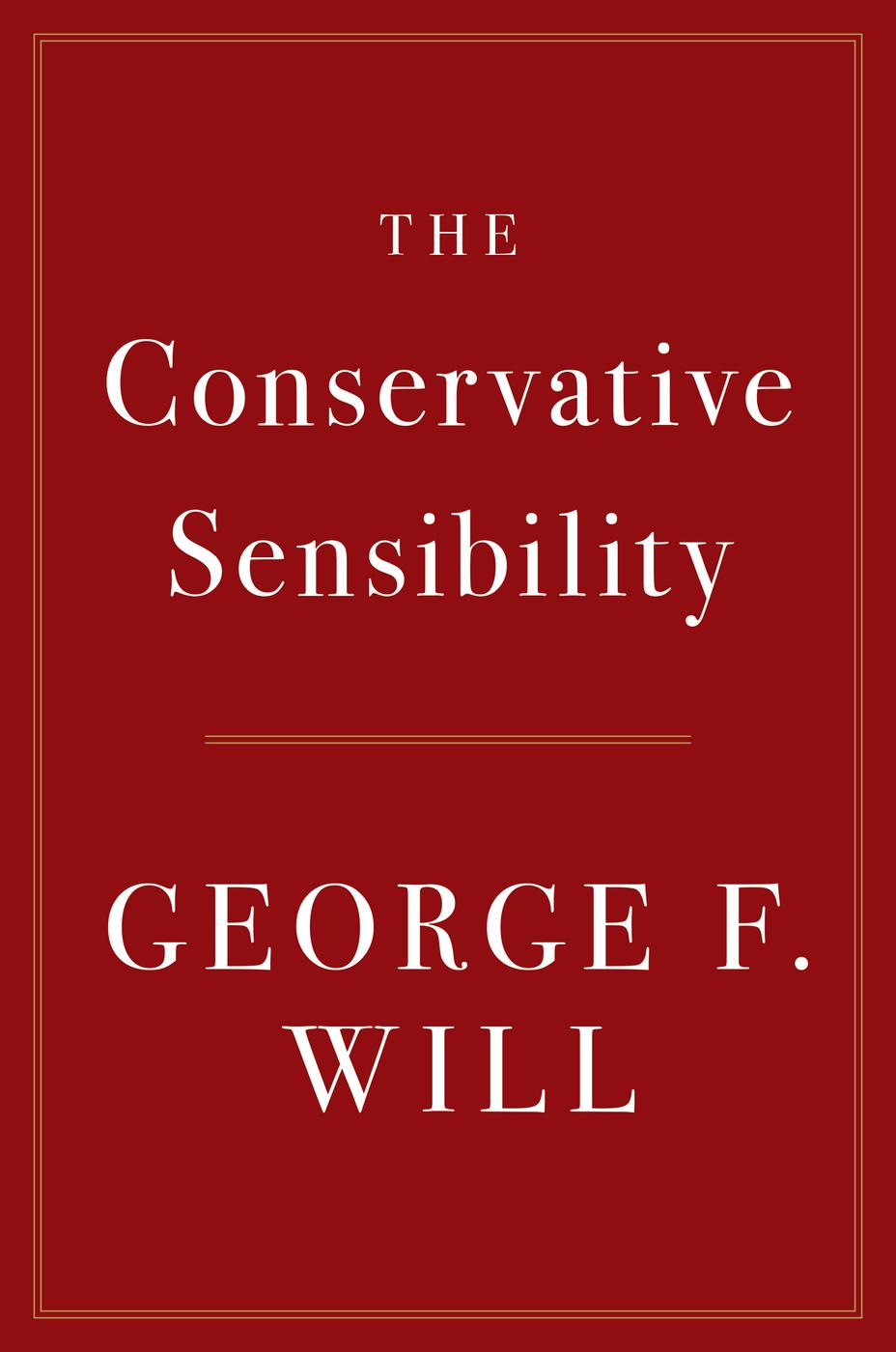
Copyright 2019 by G.F.W. Inc.
Cover design by Amanda Kain
Cover copyright 2019 by Hachette Book Group, Inc.
Hachette Book Group supports the right to free expression and the value of copyright. The purpose of copyright is to encourage writers and artists to produce the creative works that enrich our culture.
The scanning, uploading, and distribution of this book without permission is a theft of the authors intellectual property. If you would like permission to use material from the book (other than for review purposes), please contact permissions@hbgusa.com. Thank you for your support of the authors rights.
Hachette Books
Hachette Book Group
1290 Avenue of the Americas, New York, NY 10104
hachettebooks.com
twitter.com/hachettebooks
First Edition: June 2019
Excerpt from For C. from MAYFLIES: New Poems and Translations by Richard Wilbur. Copyright 2000 by Richard Wilbur. Reprinted by permission of Houghton Mifflin Harcourt Publishing Company. All rights reserved.
Hachette Books is an imprint of Perseus Books, LLC, a subsidiary of Hachette Book Group, Inc. The Hachette Books name and logo are trademarks of Hachette Book Group, Inc.
The publisher is not responsible for websites (or their content) that are not owned by the publisher.
ISBNs: 978-0-316-48093-2 (hardcover), 978-0-316-48091-8 (ebook), 978-0-316-53488-8 (BN signed hardcover)
E3-20190502-DA-NF
To the memory of Barry Goldwater.
He was the cheerful malcontent who
showed that it is possible to wed
that adjective and that noun.
Explore book giveaways, sneak peeks, deals, and more.
Tap here to learn more.

I do not mean to say, that the scenes of the revolution are now or ever will be entirely forgotten; but that like every thing else, they must fade upon the memory of the world, and grow more and more dim by the lapse of timeAt the close of that struggle, nearly every adult male had been a participator in some of its scenes. The consequence was, that of those scenes, in the form of a husband, a father, a son or a brother, a living history was to be found in every familyBut those histories are gone. They can be read no more forever. They were a fortress of strength; but, what invading foemen could never do, the silent artillery of time has done; the leveling of its walls.
Abraham Lincoln
Address Before the Young Mens Lyceum of Springfield, Illinois
January 27, 1838
John A. Wheeler (19112008) a theoretical physicist at Princeton University, was fond of this aphorism: Time is Natures way of stopping things happening all at once. When he shared this with Martin Rees, Astronomer Royal of Great Britain, Rees responded with an aphorism of his own: God invented space so that not everything had to happen in Princeton. Some interesting things do have Princeton pedigrees, and they continue to reverberate in Americas political arguments.
Princeton, 1777
I t did not have to turn out as it did. The antecedent of the pronoun could be almost anything, but in this case it was a battle that is an exhilarating illustration of contingency in history.
In the American Revolutionary War, the fate of a continent, and of an idea, was at stake in a protracted conflict involving military forces that were, compared to those of the Napoleonic wars in Europe less than a generation later, astonishingly small. The war was won, in large measure, through the skillful maneuvering, which often meant retreating, by George Washington, who lost most of the not very numerous battles in which he directly engaged British forces. One of the battles he won might, if he had lost it, have ended the war and the Revolution.
The Battle of Princeton is often, but mistakenly, considered a mere lagging episodea minor echoof the Battle of Trenton. It was more than this, and for the purpose of this book it is a suitable subject with which to begin because the subsequent chapters are, among other things, an argument against the temptation of historicismthe belief that the unfolding of events is an autonomous process with its own laws and logic. The Battle of Princeton is an invigorating illustration of the history-making role of individual agency. It occurred less than two miles from Princeton Universitys Nassau Hall. You can stroll across the battlefield in fewer than half the number of minutesforty-fivethat the fight is estimated to have lasted. As a historic site, it is shamefully neglected. As a historic event, the January 3, 1777, Battle of Princeton is astonishingly underestimated. It was one of the most consequential battles in world history because of what did not happen but easily could have. In it, the American Revolution, and the hope for a republic based on natural rights that limit government, survived a near-death experience.
The Battle of Princeton was a small skirmish in an eight-year war in which only 25,000 Americans died. This was, however, 1 percent of the new nations population, making the Revolutionary War second only to the Civil War in its lethality. In December 1776 the revolution was failing. Britain had dispatched to America 36,000 troopsat that point, the largest European expeditionary force everhoping to crush the rebellion quickly and forestall a French intervention on behalf of the Americans. General George Washington had been driven from Brooklyn Heights, then from Manhattan, then out of New York. The nation, whose independent existence had been proclaimed just five months earlier, barely existed as he retreated across New Jersey and into Pennsylvania. From there, however, on Christmas night, he crossed the Delaware River ice floes for a successful forty-five-minute battle with Britains Hessian mercenaries at Trenton. This was Washingtons first victory; he had not been at Lexington, Concord, or Bunker Hill. Trenton would, however, have been an evanescent triumph, were it not for what happened ten days later.
On January 2, 1777, British General Charles Cornwallis began marching 5,500 troops from Princeton to attack Washingtons slightly outnumbered forces, which Cornwallis hoped to pin down with their backs to the Delaware. Washington, leaving a few hundred soldiers to tend fires that tricked Cornwallis into thinking that the entire patriot army was encamped, made a stealthy fourteen-mile night march to attack three British regiments remaining at Princeton. The opposing forces collided shortly after dawn.
The most lethal weapons in this war were bayonets. The British had them; few Americans did. The Americans beat a panicked retreat from the advancing steel. By the example of his personal bravery, Washington reversed the retreat and led a charge that saved a nation. Serving Washington there was a fellow Virginian, a future Washington biographer and chief justice of the Supreme Court, John Marshall. So, in that small contested field that day were the two men most important in making the infant republic into a nation. When the redcoats ran, the British aura of invincibility and the strategy of securing territory and handing out pardons were shattered. But this would not have been the judgment of any historian if Washington had not prevailed at Princeton.
The British retreated into Princeton, where some took refuge in Nassau Hall. Of the three cannonballs that American soldiers fired at Nassau Hall, one missed, one bounced off the south wall, leaving a pockmark that is still visible, and the third supposedly sailed through a window and neatly removed the head from a portrait of King George II. It is said that the artillery was commanded by a Washington aide named Alexander Hamilton. It is altogether appropriate that Nassau Hall, which at the time was the largest building in New Jersey and the largest academic building in the nation, was, so to speak, present at this moment in the nations creation. In that building James Madison, who was to become the nations fourth president, had lived and studied, and Woodrow Wilson, who was to become the twenty-eighth president, would begin his ascent to national prominence from his Nassau Hall office as president of Princeton University.



